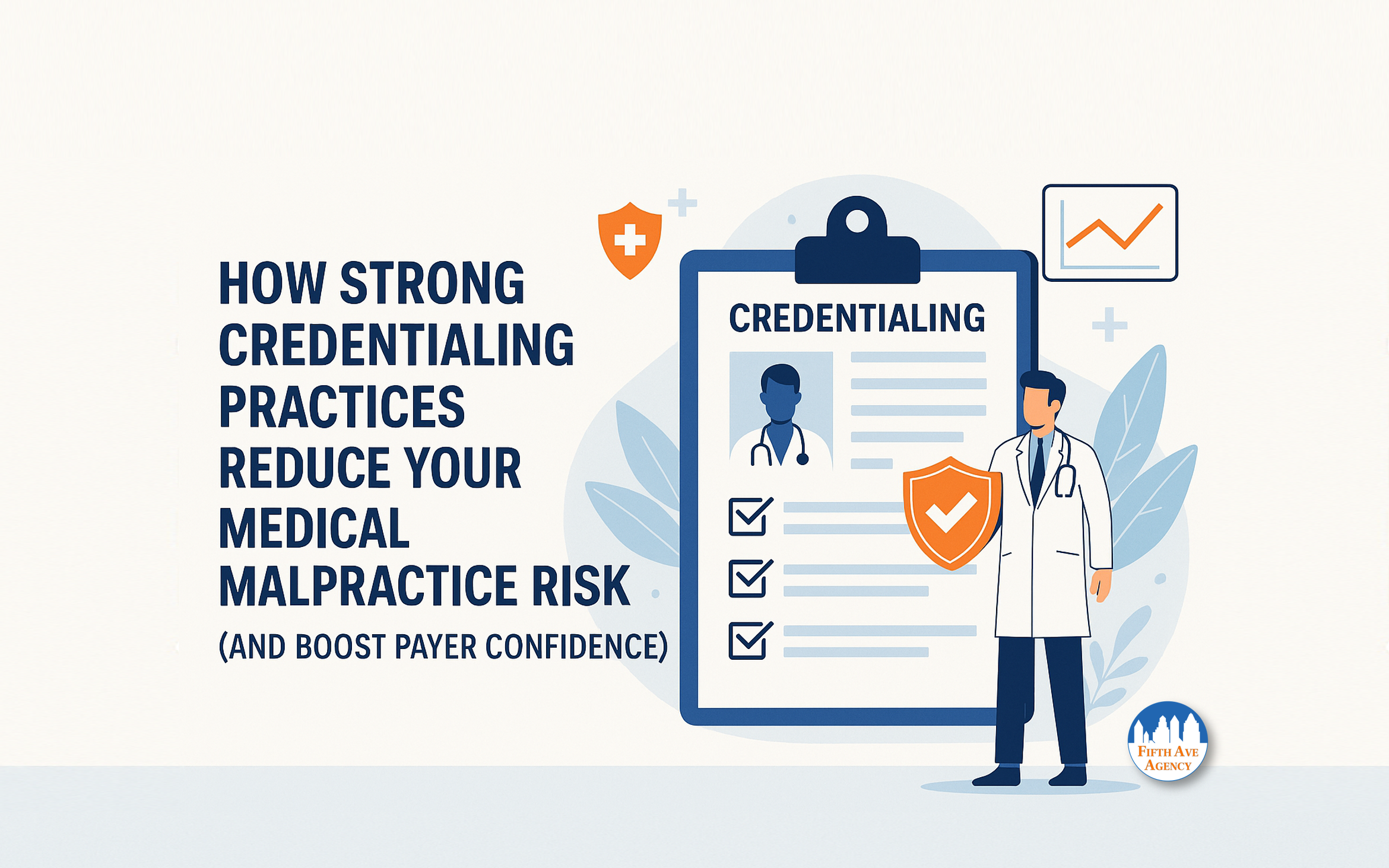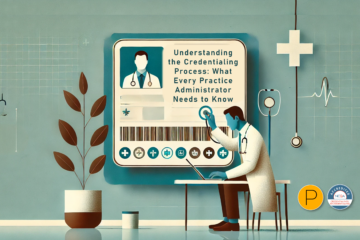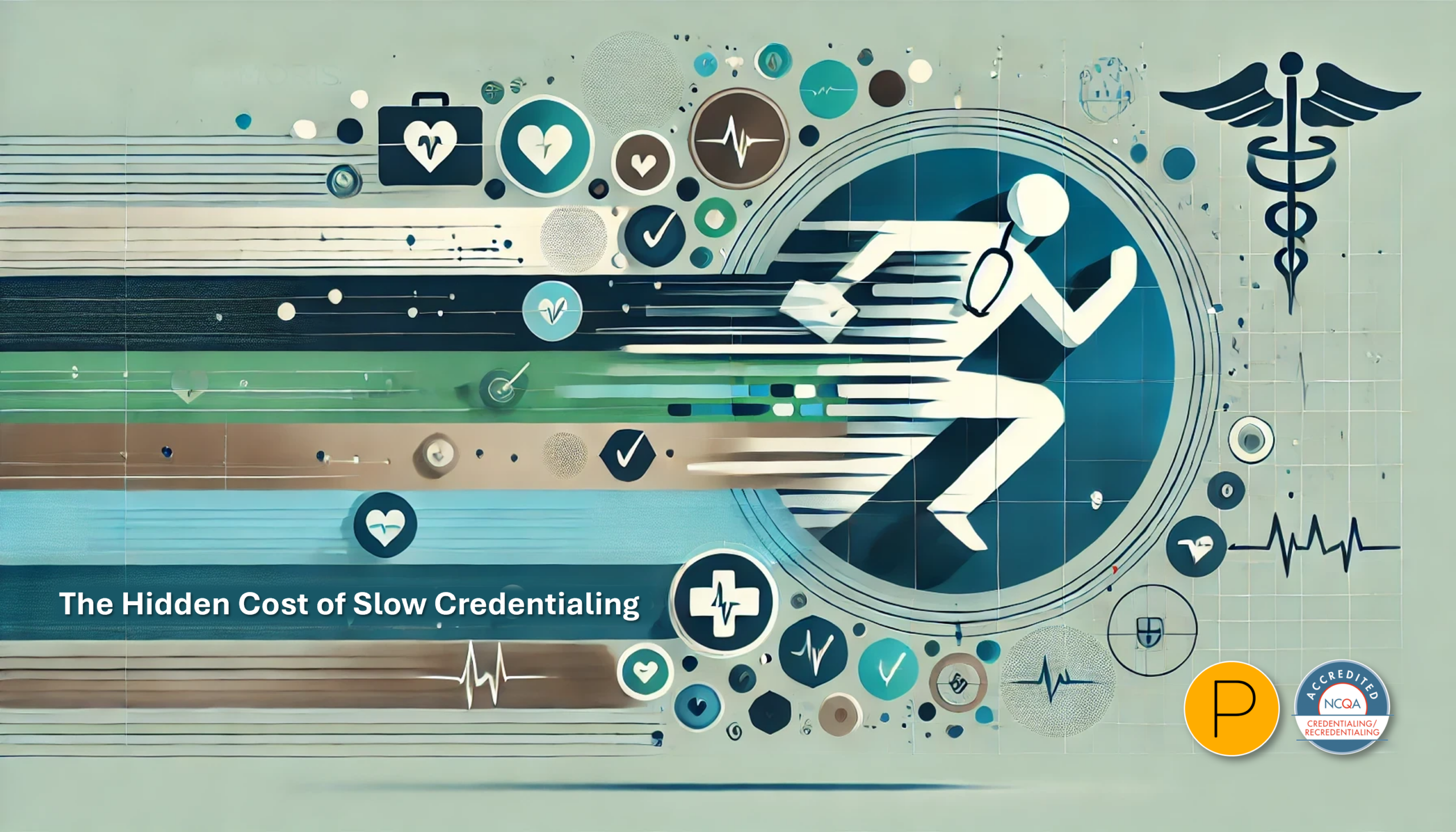In the ever-evolving healthcare landscape, quality assurance, and patient safety remain paramount. One of the most esteemed accreditations in the field is provided by the National Committee for Quality Assurance (NCQA). NCQA credentialing accreditation has become a gold standard for healthcare organizations striving for excellence.
In this article, we will delve into the ten top reasons for obtaining NCQA credentialing accreditation, explore the use of technology in NCQA, discuss the reasons why a healthcare facility may decide not to pursue this accreditation, highlight Fifth Avenue Healthcare Services, 5ACVO, and Primoris Credentialing Network as prominent entities with NCQA Credentialing Accreditation, and further examine the value of NCQA Credentialing Accreditation to the healthcare industry.
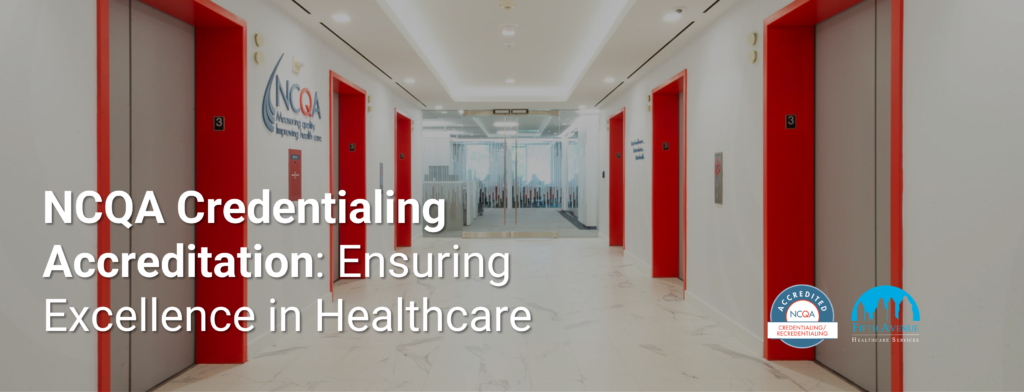
Ten Top Reasons for Obtaining NCQA Credentialing Accreditation:
- Enhancing Patient Safety: NCQA accreditation promotes robust credentialing processes, ensuring that only qualified healthcare professionals are part of the provider network. This meticulous scrutiny enhances patient safety and mitigates the risk of substandard care. Patients can have confidence that they are receiving care from competent providers who meet rigorous standards.
- Demonstrating Commitment to Quality: By obtaining NCQA accreditation, healthcare organizations showcase their dedication to providing high-quality care and meeting rigorous industry standards. It reflects a commitment to continuous improvement and patient-centered care. Accreditation serves as a visible symbol of an organization’s commitment to excellence, which can foster trust and confidence among patients and stakeholders.
- Access to Preferred Networks: NCQA-accredited organizations gain access to preferred networks and partnerships, expanding their patient base and fostering collaborative relationships with other accredited entities. This can result in increased referrals and improved market position. Being part of preferred networks allows organizations to access a wider pool of patients and build strong networks within the healthcare community, leading to increased growth and visibility.
- Compliance with Regulatory Requirements: Many regulatory bodies recognize NCQA accreditation as a marker of quality assurance. By obtaining this accreditation, healthcare facilities align themselves with industry standards, ensuring compliance and reducing the risk of penalties. Accreditation provides a framework for meeting regulatory requirements, making the organization well-prepared for audits and inspections, and reducing the administrative burden associated with regulatory compliance.
- Boosting Provider and Staff Morale: NCQA accreditation serves as a source of pride for providers and staff, fostering a culture of excellence and teamwork. It validates their skills and expertise, leading to improved job satisfaction and staff retention. Accreditation recognizes the efforts of healthcare professionals and creates a positive work environment, which can contribute to enhanced employee engagement and retention rates.
- Improved Reimbursement Rates: Payers often tie reimbursement rates to quality metrics. NCQA accreditation demonstrates a commitment to quality care, which can lead to improved reimbursement rates and financial stability for healthcare organizations. Higher reimbursement rates contribute to the economic sustainability of the organization and allow for investment in better resources and services, leading to improved patient outcomes.
- Enhanced Operational Efficiency: The NCQA accreditation process encourages organizations to streamline their credentialing processes, leading to increased operational efficiency. Standardizing and automating workflows can reduce administrative burden and improve overall productivity. Accreditation promotes the adoption of best practices and efficient processes, optimizing resource allocation and freeing up valuable time for healthcare professionals to focus on patient care.
- Competitive Advantage: NCQA accreditation sets accredited organizations apart from their competitors. It demonstrates to patients, employers, and payers that the organization has met rigorous standards, making it an attractive choice in a crowded healthcare marketplace. According to Medconcert, NCQA accreditation can differentiate an organization from others, leading to increased patient loyalty, market share, and partnerships with payers and employers.
- Evidence-Based Decision Making: NCQA accreditation necessitates the collection and analysis of data, promoting evidence-based decision-making and quality improvement initiatives. This data-driven approach empowers organizations to identify areas for growth and make informed decisions. By analyzing data, organizations can identify trends, patterns, and areas for improvement, leading to better patient outcomes and strategic decision-making.
- Continuous Quality Improvement: NCQA accreditation is not a one-time achievement; it requires ongoing commitment to maintaining and improving quality standards. Accredited organizations are constantly challenged to enhance their practices, resulting in a culture of continuous quality improvement. By actively engaging in quality improvement initiatives, organizations can stay at the forefront of advancements in healthcare and provide the best possible care to their patients.
Four Reasons a Healthcare Facility May Decide Not to Obtain NCQA Credentialing Accreditation
- Resource Limitations: Pursuing NCQA accreditation requires a significant investment of time, financial resources, and personnel. Smaller healthcare facilities with limited resources may find it challenging to allocate the necessary resources for accreditation. The costs associated with the accreditation process, including training, software implementation, and documentation, can be substantial. The financial burden may outweigh the perceived benefits, especially for organizations with constrained budgets.
- Niche Specialties: Some healthcare facilities may operate in niche specialties or serve a unique patient population that does not align with the specific credentialing standards set by NCQA. In such cases, pursuing alternative accreditation options may be more appropriate. Niche specialties often have their own accreditation bodies that cater to their specific needs and standards. These alternative accreditations may provide a more tailored approach to assessing the quality and safety of care delivered within those particular specialties.
- Timing and Priorities: Healthcare organizations often have competing priorities and may choose to focus on other initiatives, such as implementing electronic health records or expanding services, rather than pursuing NCQA accreditation at a given time. Timing plays a crucial role in the decision-making process, and organizations may opt to pursue accreditation when it aligns better with their strategic goals and when they have the necessary resources available. The organization may decide to address other pressing needs before embarking on the accreditation journey.
- Alternative Accreditation: While NCQA Credentialing Accreditation is highly respected, there are various accreditation bodies in the healthcare industry, each with its own set of standards. Some organizations may opt for alternative accreditations that better align with their specific goals and objectives. These alternative accreditations may focus on particular aspects of healthcare delivery or cater to specialized areas of practice. Choosing alternative accreditations allows organizations to tailor the accreditation process to their unique needs and priorities.
The Role of Technology in NCQA
NCQA recognizes the importance of technology in streamlining credentialing processes and facilitating data-driven decision-making. The organization encourages the use of advanced credentialing software, electronic data interchange, and robust analytics to enhance efficiency, accuracy, and compliance. Technology solutions enable real-time monitoring of provider credentials, expediting the credentialing process and reducing administrative burdens.

The use of technology also enables organizations to track and analyze quality metrics, identify areas for improvement, and streamline communication among healthcare professionals. By leveraging technology, organizations can automate manual processes, reduce errors, improve data accuracy, and ensure compliance with credentialing standards.
Fifth Avenue Healthcare Services and NCQA Credentialing Accreditation
Fifth Avenue Healthcare Services, along with its sister companies 5ACVO and Primoris Credentialing Network, proudly holds NCQA Credentialing Accreditation. As industry leaders, these organizations have demonstrated their commitment to delivering exceptional care and meeting the highest quality standards. Fifth Avenue Healthcare Services, in particular, has established itself as a premier healthcare provider, offering comprehensive services to patients while prioritizing patient safety and quality of care.
Their NCQA accreditation reflects their dedication to excellence and sets them apart as trusted providers in the healthcare industry. With NCQA accreditation, these organizations have demonstrated their commitment to patient safety, quality improvement, and adherence to industry best practices.
The Value of NCQA Credentialing Accreditation to the Healthcare Industry
NCQA Credentialing Accreditation holds immense value for the healthcare industry as a whole. Here are some key ways in which it contributes to the industry’s advancement:
- Standardizing Quality: NCQA Credentialing Accreditation sets a high standard for quality in healthcare. By implementing robust credentialing processes and evaluating provider qualifications, the accreditation ensures that patients receive care from competent professionals. This standardization promotes consistency and elevates the quality of care delivered across healthcare organizations.
- Promoting Patient Safety: Patient safety is a critical aspect of healthcare delivery. NCQA Credentialing Accreditation prioritizes patient safety by verifying the qualifications and competencies of healthcare providers. By ensuring that only qualified professionals are part of the provider network, the accreditation minimizes the risk of medical errors and substandard care, ultimately enhancing patient safety and reducing adverse events.
- Facilitating Interoperability: NCQA Credentialing Accreditation encourages the use of technology and electronic data interchange to streamline credentialing processes. This emphasis on interoperability promotes seamless data exchange among healthcare organizations, enabling efficient sharing of provider information and credentials. Improved interoperability supports coordinated care, reduces administrative burden, and enhances collaboration among healthcare entities.
- Advancing Evidence-Based Practices: Accreditation requires organizations to collect and analyze data, enabling evidence-based decision-making and quality improvement initiatives. Through data-driven approaches, NCQA-accredited organizations can identify trends, measure performance, and implement evidence-based practices to improve patient outcomes. This emphasis on data-driven decision-making contributes to the advancement of evidence-based medicine and fosters a culture of continuous learning and improvement.
- Influencing Policy and Regulation: NCQA Credentialing Accreditation has a substantial influence on healthcare policy and regulation. Recognized by many regulatory bodies, the accreditation sets a benchmark for quality assurance, influencing the development of regulations and guidelines. Regulatory authorities often align their requirements with NCQA standards, creating a cohesive and standardized approach to quality improvement across the industry.
- Fostering Trust and Transparency: NCQA Accreditation enhances transparency and builds trust among patients, employers, and payers. Accredited organizations undergo rigorous evaluations, and the accreditation status signifies their commitment to meeting quality standards. This transparency enables patients to make informed decisions about their healthcare providers, employers to choose high-quality networks for employee health benefits, and payers to partner with trusted organizations.
- Encouraging Continuous Quality Improvement: NCQA Credentialing Accreditation promotes a culture of continuous quality improvement within healthcare organizations. By requiring organizations to engage in ongoing quality improvement initiatives, the accreditation drives innovation, encourages the adoption of best practices, and supports the delivery of patient-centered care. This focus on continuous improvement enhances the overall quality of healthcare services and contributes to better patient outcomes.
The Value of NCQA Credentialing Accreditation: A Comprehensive Analysis Conclusion
NCQA credentialing accreditation offers numerous benefits for healthcare organizations seeking to excel in today’s demanding healthcare landscape. From enhancing patient safety and promoting quality to improving operational efficiency and fostering continuous quality improvement, this prestigious accreditation serves as a testament to an organization’s commitment to excellence.
Moreover, its value extends beyond individual organizations to the healthcare industry as a whole, contributing to standardized quality, patient safety, interoperability, evidence-based practices, policy influence, trust, transparency, and continuous quality improvement.
By embracing NCQA Credentialing Accreditation, healthcare organizations play a vital role in advancing the industry and delivering high-quality care to patients.
More information about Fifth Avenue Healthcare Services
Fifth Avenue Healthcare Services is an NCQA Credentialing Accredited family of healthcare companies. Sister companies include 5ACVO (credentialing and primary source verification specialists), Fifth Avenue Agency (MPLI and medical malpractice insurance specialists), and Primoris Credentialing Network (credentialing and provider enrollment specialists with 54+ health plan and network provider enrollment options).
For information on Fifth Avenue Healthcare Services, please visit FifthAvenueHealthcareServices.com or Contact Us.

